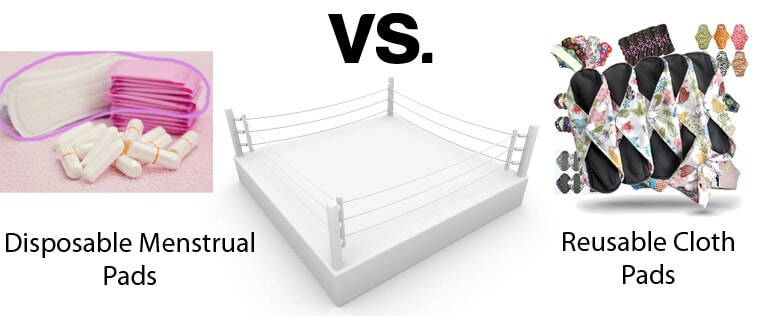Disposable or Reusable Pads? – Aid agencies, as part of their care packages, often provide disposable pads for women to use. This is a large ongoing cost and many seek donations to pay for these. If you consider that each woman would need several boxes or packages of products a month, this is a huge ongoing cost.
The main problem with giving disposable pads is that they are disposable, and supplies need to be provided on an ongoing basis. The women receiving them are left dependant on these organisations providing them. In some remote areas there can be problems with disposal of such products (incineration or burial) https://www.queenaantwerp.com/

“Give a man a fish and it can feed him for a day……
teach a man to fish and it can feed him for a lifetime”
If aid agencies can donate reusable menstrual products to these women, they can not only limit the amount of money spent on ongoing purchases of these products (which leaves more for other aid), but it can also give the women the independence to be able to take care of themselves from then on. They won’t need to be reliant on more aid for their menstrual needs.
Ultimately with all aid given to Developing/Impoverished countries, it is better to help the people become self sufficient and help them build their communities up so that they do not need outside aid. Continuing to give disposable products to women does not help them attain that self sufficient lifestyle. Programs, such as those run by HURU and SHE, where they encourage women to make pads which forms not only a small business for the ones making the pads, but also a self-supporting system where the women do not require ongoing donations of disposable pads.
There is also the environmental impact of disposables, particularly in regard to sanitation, where developing countries may not have the systems to deal with such a large amount of waste. All those used pads and tampons have to go somewhere. I imagine many are incinerated, which can cause pollution (in the case of pads that contain plastics), and breathing in fumes from burning plastics can be harmful to health.
Having said that, reusable options may not always be appropriate. Cloth pads require a reasonable amount of water to wash which is sometimes difficult to come by in certain areas. However the reusable nature is of benefit to both the women and the aid agencies, if they can be given in places where they can be washed.
As far as donating pads to impoverished women, the following may be considered:
| Cloth Advantages | Cloth Disadvantages | Disposable Advantages | Disposable Disadvantages |
| ReusableWill last many yearsWomen not dependant on ongoing donationsWomen need only a few pads or 1 cupNo waste | Needs access to water for cleaningHarder to source (relies on companies or individuals donating them) | No need to washMore readily available for donators to buy | DisposableRequire ongoing supplyExpensiveNeeds appropriate disposal system |
Luckily there are agencies that are supplying cloth menstrual pads and ones only dealing with disposable products – which at least means the women in need are able to use something, which is ultimately better than nothing.